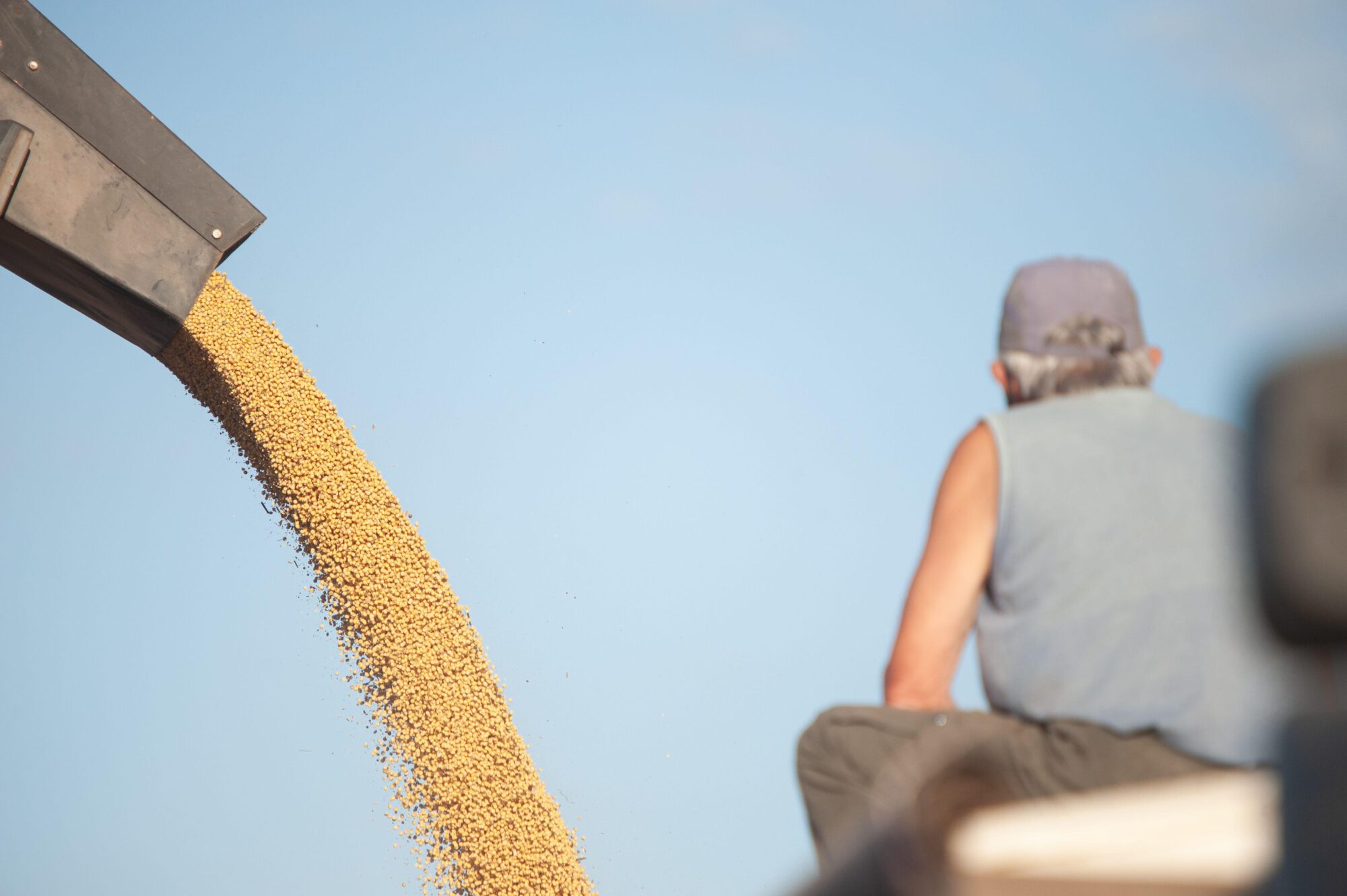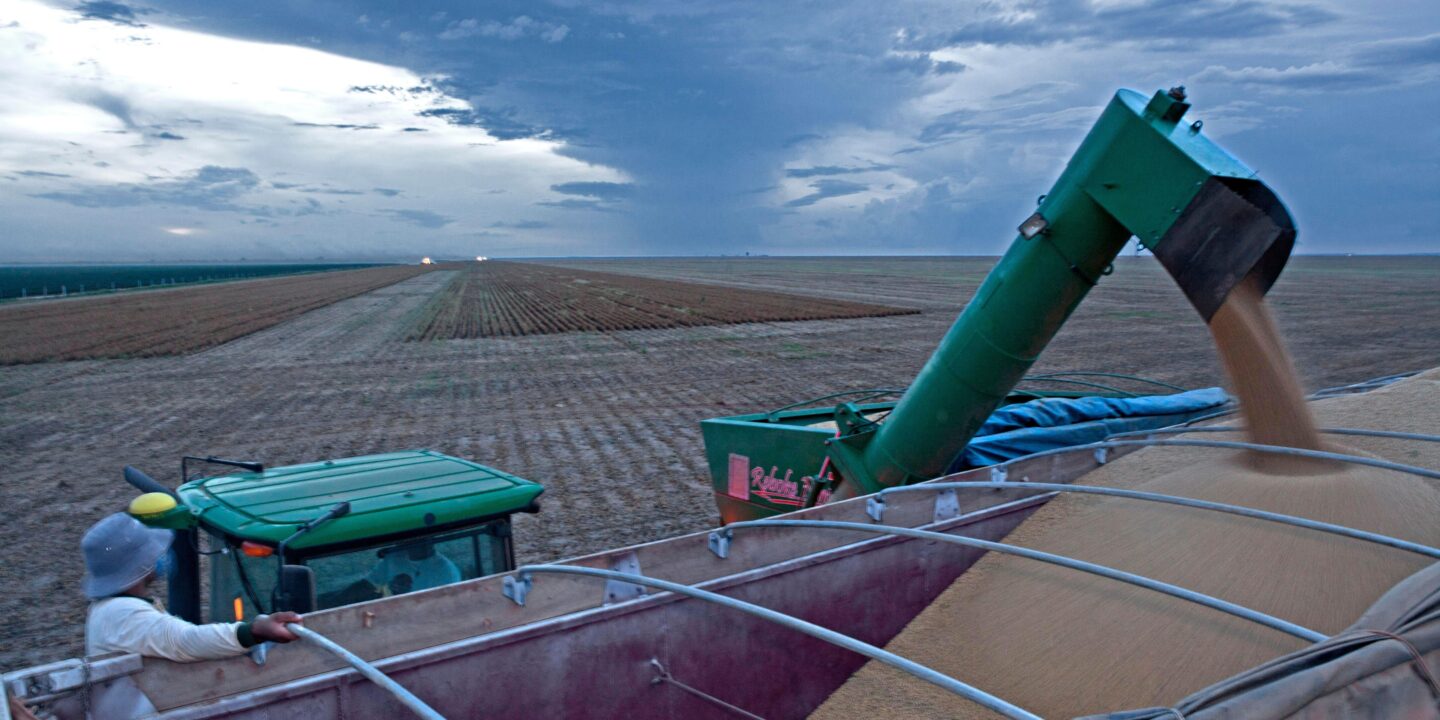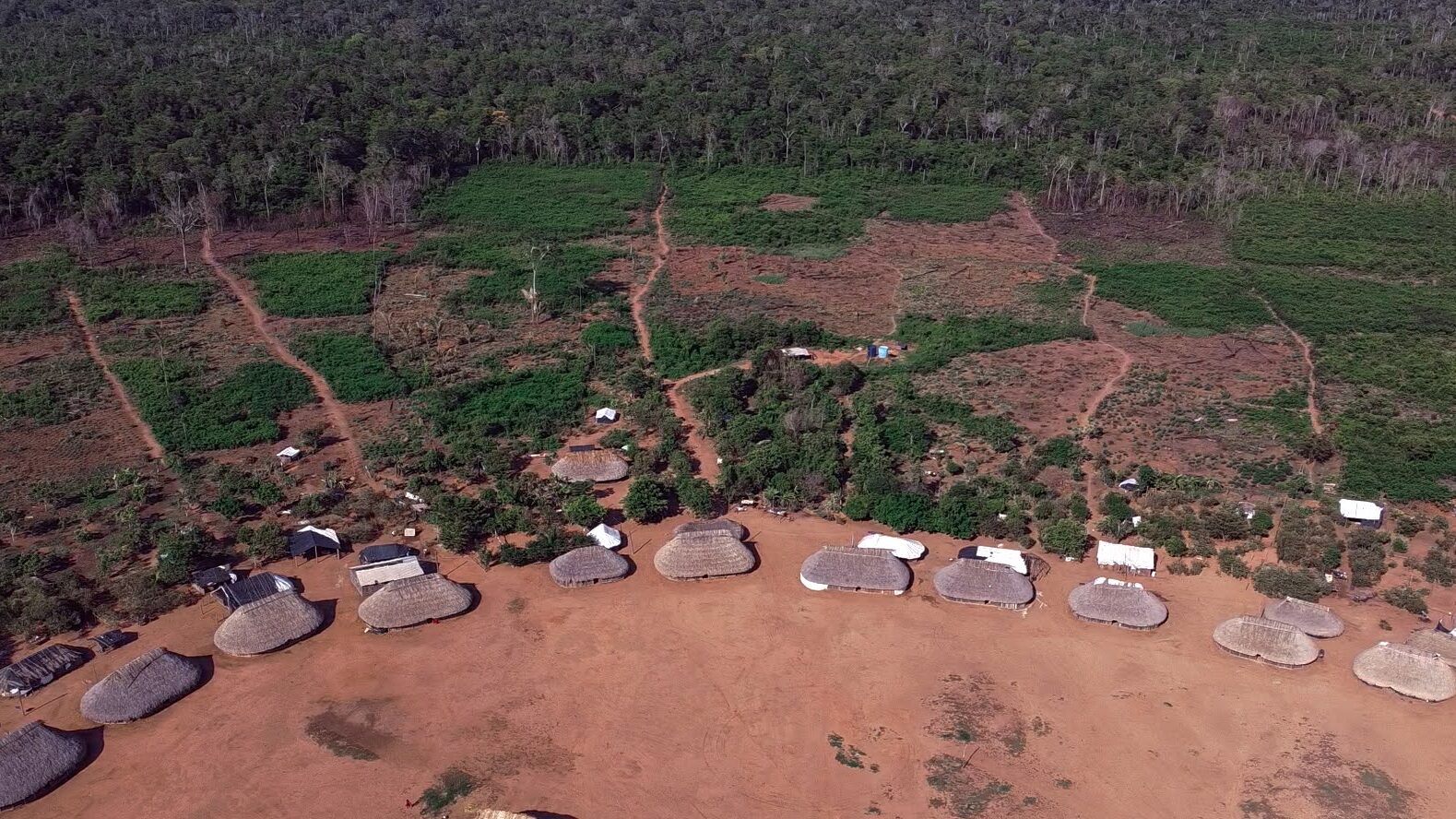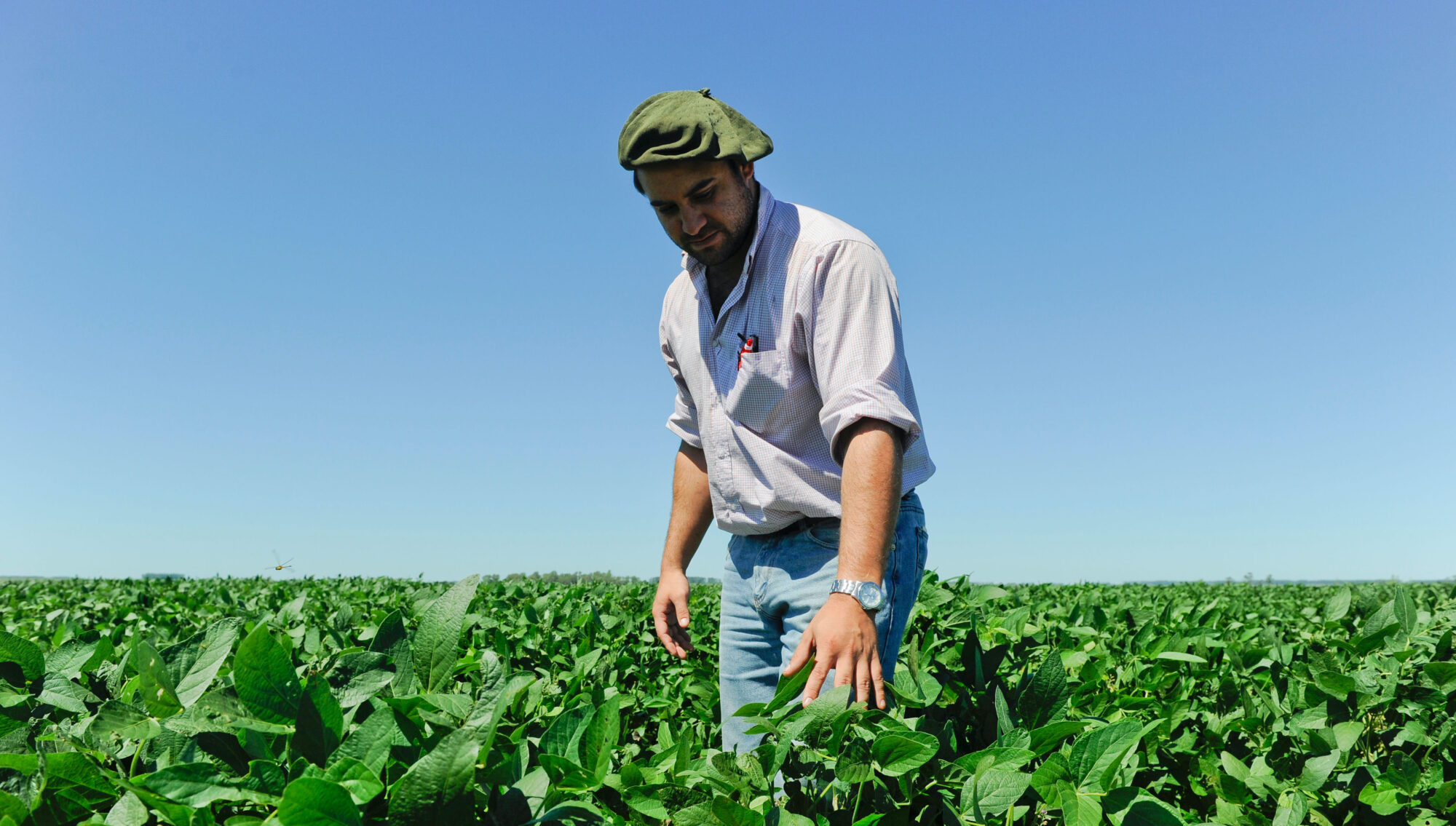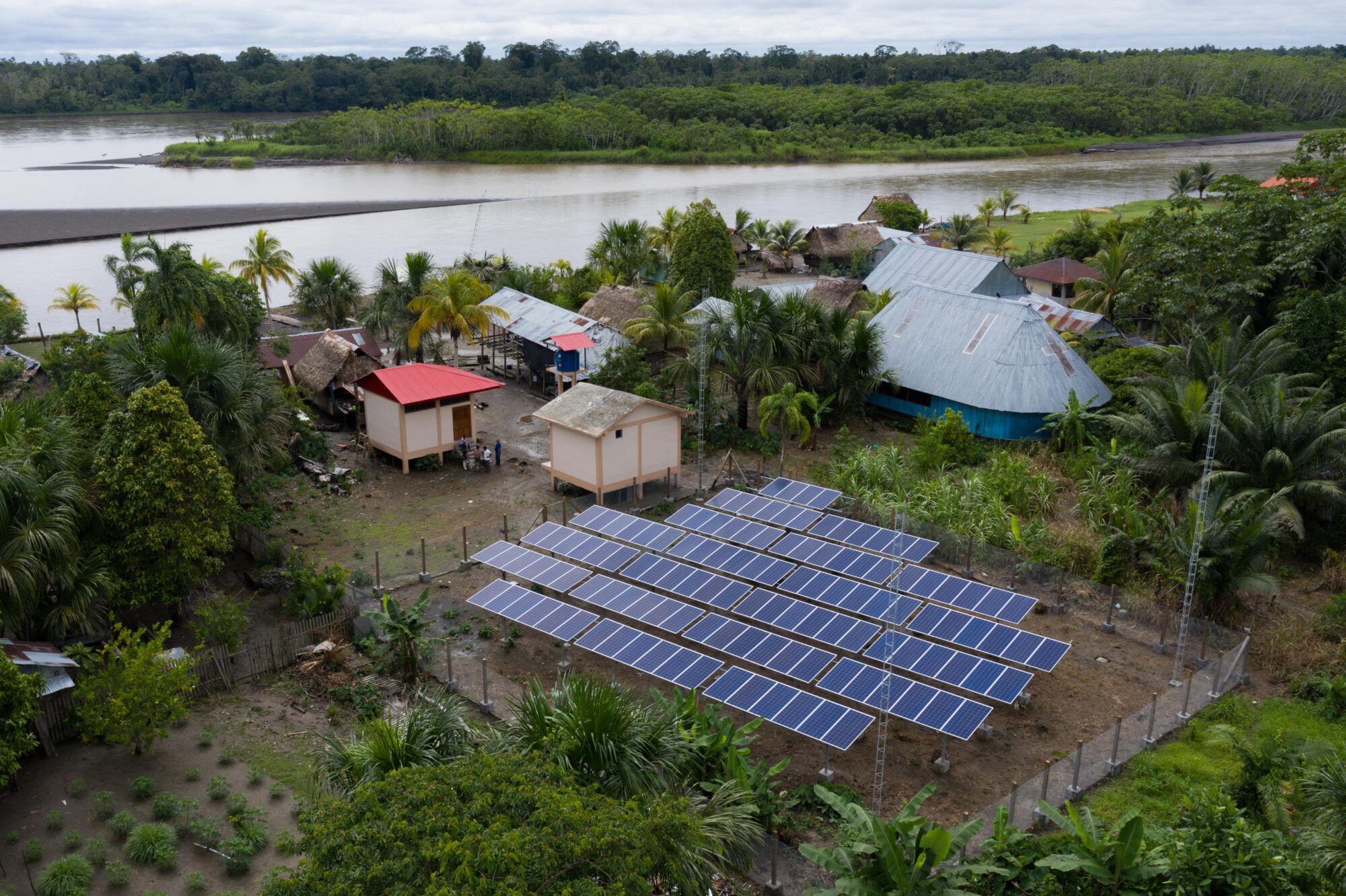Soybean producers and traders in Argentina are looking to establish traceability systems to ensure that produce comes exclusively from deforestation-free fields, efforts that come amid increasingly demanding regulations in export markets such as the European Union and pressure for sustainable food production from environmental organisations.
Soy is one of the world’s major sources of protein, with both its grains and by-products primarily used as animal feed. It is also a key crop and a huge foreign exchange earner for Argentina, the world’s third-largest producer, behind the United States and Brazil.
Although soy’s cultivation in Argentina dates back to the early 20th century, its expansion and elevation to the “top of the crops” has taken place in the last few decades. While some 80,000 hectares were planted with soy in the 1971-72 season, this number rose to 2 million hectares 10 years later. By 2007-08, this area had multiplied to 16 million hectares, at a time of record-high prices.

This expansion was accompanied by an intense process of land-use change that included forest loss, especially in the Gran Chaco biome that stretches across northern Argentina. This ecosystem, the second-largest forest in South America after the Amazon, is one of the world’s 24 major “deforestation fronts”, according to WWF.
Northern Argentina lost over 110,000 hectares of forest in 2021, Greenpeace reports. Hernán Giardini, coordinator of Greenpeace Argentina’s forestry campaign, told Diálogo Chino that about half of all deforestation in the country is illegal, either carried out in prohibited areas or with “weak permits”.
Moving forward with traceability schemes that guarantee soy products are not linked to deforestation could therefore be key, Giardini said. But he warned that long and complex supply chains, as well as the accumulation of soy from different sources at export ports, will continue to make products with illegal origins difficult to trace.
Responding to demanding markets
Argentina and the other major agricultural producing nations in South America are facing an increasingly pressing need to move forward with traceability initiatives in response to fresh demands from Europe, one of their key export markets. In December, European Union legislators reached an agreement over regulations that will seek to ensure that no product sold to the EU comes from deforested land.
“Europe is moving fast with restrictions on imports of products that are currently the biggest drivers of global deforestation: soy, meat, cocoa and others,” said Giardini. “If South American countries want to maintain their agro-export model, deforestation is the main issue to be resolved in the short term,” he added.
If Europe starts, the US and the UK will follow, then China, India and almost all the buyers thereafter
Gustavo Idigoras, president of the Argentine Edible Oil Association (CIARA), made the same diagnosis and lamented a lack of earlier action from producers in anticipation of the new requirements: “The markets gave us an opportunity to develop these traceability programmes as a niche, but it is now becoming a condition of production and access to these markets, and that is a transformational change.
“Until now we could decide whether or not to do something [on traceability], but that will no longer exist. If Europe starts, the United States and the United Kingdom will follow, and then China, India and almost all the buyers thereafter.”
Several crop traceability initiatives are already underway in Argentina, coming both from individual companies and other groups working at the sectoral level.

One small-scale example is Ucrop.it, an Buenos Aires-based start-up that – through a partnership with commodity trader Viterra Argentina – offers soy producers more favourable crop values if they make their production data available via its app from the sowing stage through to the harvest.
Elsewhere, multinational trader and soy processor Louis Dreyfus Company (LDC) has made commitments to increase its percentage of sustainable soy output in Argentina. In collaboration with local producers, it has worked to improve documentation for traceability throughout the supply chain. For the 2020-21 season, it was able to certify that 77% of the soy handled at the General Lagos complex in Rosario – one of the world’s largest soy processing facilities – was “sustainable”, which they defined as soy produced on land that had not been cleared since 2008.
At a larger scale are several sustainable agriculture initiatives in the Gran Chaco funded by the Land Innovation Foundation (LIF), a fund set up by global food corporation Cargill to seek solutions for deforestation and sustainable livelihoods. “Our goal is to promote and support innovative solutions to achieve a deforestation-free, carbon-neutral soy supply chain,” said Carlos Quintela, the fund’s director. Cargill has faced repeated allegations of driving deforestation and forest fires, including in the Gran Chaco region, as a 2018 report highlighted.

One project to receive funding from LIF is being developed by the Argentine Association of Regional Agricultural Experimentation Consortia (AACREA) and the Argentine Association of the Soy Supply Chain (ACSOJA). It targets innovative and sustainable agricultural production models for the Gran Chaco region, across environmental, economic and social indicators. The project works closely with 100 small- and medium-scale farmers working on 250,000 hectares in the Chaco, monitoring and promoting practices for sustainable intensification that boost production on their existing lands, as well as restoring degraded soils.
According to Federico Fritz, a specialist in sustainable development at AACREA, the association hopes to have evaluated the initiative by 2024, which will allow them to identify and understand the most successful practices for sustainable soy production in the Chaco.
Another LIF-funded project is being carried out by the Argentine conservation foundation ProYungas, together with the Argentine Association of Direct-Seeding Producers (AAPRESID). Working at three pilot sites in the Gran Chaco over the course of three years, it aims to strengthen cooperation between farmers and civil society organisations, to support best practices, conservation and restoration of native vegetation on soy farms, and to enhance the value of standing forests. “We are targeting land management at a landscape scale, and working to measure the carbon footprint of the entire soybean chain,” said Sebastián Malizia of ProYungas.
New monitoring platform
The LIF is also funding an ambitious three-year project, managed by CIARA, called VISEC: a monitoring platform for the soy supply chain in Argentina that combines public and private systems and seeks to trace the crop in priority conservation areas in the Gran Chaco – and ultimately curb deforestation.
Launched in May 2022, the VISEC system aims to bring together monitoring and verification data for all the soy traded in Argentina on one unified platform, covering various environmental and social sustainability parameters and requirements. The initiative will require participation and contributions from across the supply chain, from farmers and traders to surrounding communities, looking to create a transparent, publicly accessible database.
Traceability has to be a consensual collective action
Idígoras said the programme goes beyond the individual initiatives of specific companies to target a zero-deforestation certification for the entire Argentine soy supply chain. “We have been working on this platform for three years now,” he added.
“We have been talking to the organisations that represent Argentina’s 80,000 soybean producers, brokers, stockpilers and cooperatives. We are convinced that this has to be a consensual collective action.”
The challenge lies in implementing the system to meet market demands and provide “real and effective guarantees” of traceability and transparency, said Idigoras, who reiterated the goal of ensuring all soy oil, meal and bean exports are 100% deforestation-free: “The level of soy from illegal deforestation is less than 5% of annual production [in Argentina], which is low compared to other countries. We want to get to zero – that’s what we are going to work for.”
